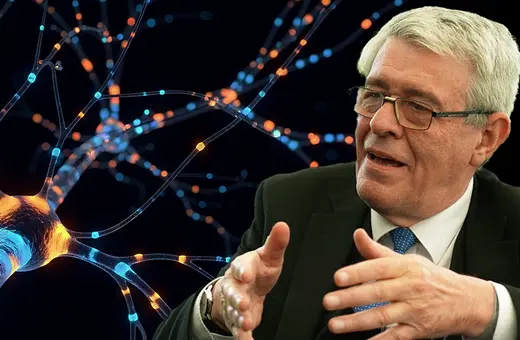Mental health is everyone’s business, and as the world continues to change at an accelerating rate, we must already be working on the treatments of tomorrow. In spite of our best desires we are not likely to get rid of mental illness altogether but we can work towards better mental health for everyone. Working with patients in a collaborative way is the first key step. In addition, as social demographics change, we must embrace new technologies. Putting more power into the hands of patients may well hold the answer.
A recent report by the Mental Health Foundation suggested that effective mental health care in the next three decades should focus on new ideas and fresh ways of working with new technology. One idea may be to give patients their own records on a USB stick. This enables patients to take control of their own information, potentially leading to improved and more efficient information sharing, better awareness, and more effective outcomes.
With rapid expansion in social media we also have the possibilities of providing support and even therapies using tele-mental health. There are possibilities of therapies without therapists – especially web-based cognitive behaviour therapies. Technology must also be utilised by professionals to help share good models of practice and implement these wherever possible.
New technologies will not be a panacea for every illness, however: human contact will never stop being essential, and approaching the doctor-patient relationship as a collaborative one will be critical. Early and continuing training will ensure that health professionals take this into practice. The workforce therefore must have skills which are truly participative, that enable those who may lack capacity to make decisions. We must actually listen to our patients.
We must also promote collaboration between professionals. Mental health services of the future must involve training service users both in their own care and in establishing ongoing monitoring and support. More than one third of general practitioners’ workload is related to mental illness so closer liaison and mental health services should be led by the primary care sector, with specialist interventions and expertise easily accessible in primary care settings. Peer support and community care should also be high on the agenda. Good integrated care between primary and secondary sectors, between physical and mental health, and between health care and social care is essential for best delivery.
Working across the porous boundaries between specialist and general psychiatric services will enable better services. All health workforce of the future needs a balance of specialist and generalist staff, with clearly defined skills and roles, but able and willing to work collaboratively in support of individual patients. They also need to know the best, evidence-based clinical and social interventions they can offer to people.
There is clear epidemiological evidence that nearly three-quarters of psychiatric disorders in adulthood start below the age of 24 and a half start below the age of 15. This means that school and young adult mental health should become a major priority. It is critical that services are poised to intervene early. Mental health professionals need to advocate for their patients and also for their families to overcome social inequalities and break any generational cycle of poor mental health and mental illness. The case for more preventative work and public mental health is undeniable. The early years of a child’s life span are crucial, and interventions for parenting and promoting good parental mental health are important for the future.



















Join the conversation